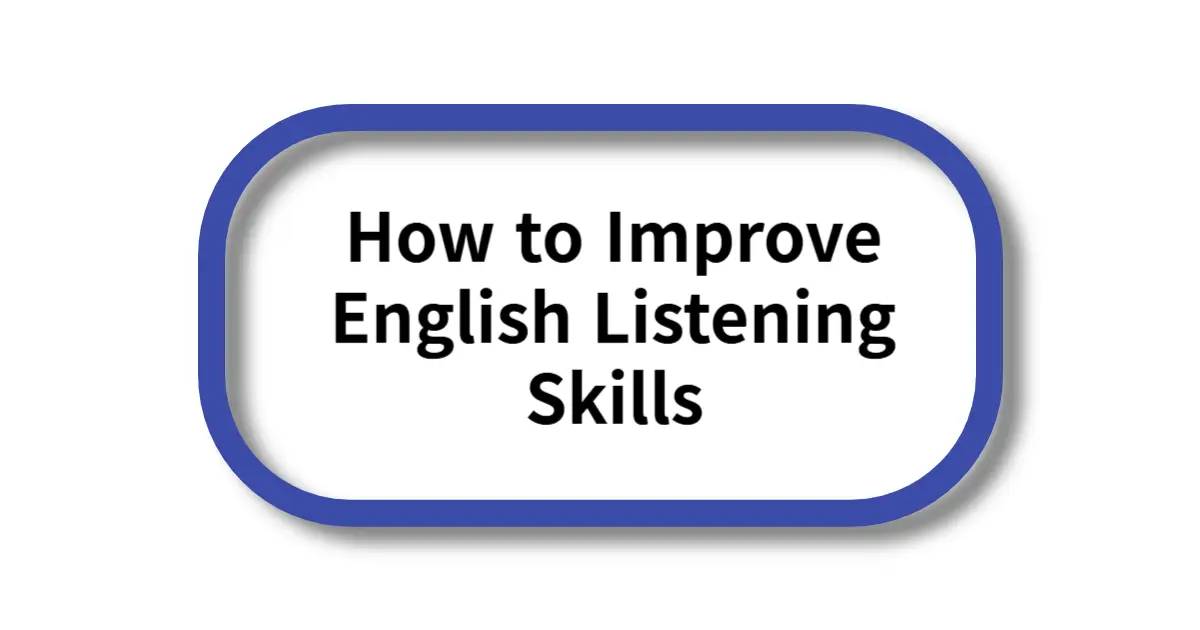If you’ve ever struggled to understand English movies, podcasts, or day-to-day conversations, you’re not alone. Improving your listening skills isn’t about talent—it’s about strategy, consistency, and communication habits. This guide explains how to improve English listening skills in practical steps that global learners can apply every day.
How to improve English listening skills – 7 Proven Techniques
1. Listen Every Day
Even 15 minutes daily of English—be it podcasts, TV, news, or YouTube—helps your brain adapt to the rhythm and pronunciation of real speech.
Consistency is key. Spend at least 15–30 minutes daily listening to English audio—whether it’s news, music, podcasts, or YouTube channels. The more your brain hears natural English, the faster it adapts to the rhythm and pronunciation.
Pro Tip: Start with slow, clear speech (like BBC Learning English) and gradually move to faster, more natural conversations.
“The key is to listen to as many hours as you can that are 70–80%+ comprehensible for you.” – Reddit community insight
Best Free Apps to learn English in 2025 (That Actually Work)
2. Practice Active Listening
Actively engage with what you hear: pause, repeat, write down new expressions, and compare with transcripts.
Passive listening (playing English in the background) is good for exposure, but active listening is where real improvement happens.
- Pause and repeat sentences.
- Write down what you hear.
- Compare your notes with transcripts.
- Tip: Instead of passive “hearing,” focus on understanding key words or phrases.

(Image from Pexels)
3. Use Subtitles & Transcripts Wisely
Start with English subtitles, then move to no subtitles to challenge your comprehension. Alternatively, read transcripts while listening.
- Preply emphasizes: active listening beats passive absorption every time.
4. Start Simple then Gradually Increase Complexity
Use clearly spoken, slow-content first—like audiobooks or beginner podcasts—then move on to faster, real-world content.
5. Shadowing Technique
Listen and immediately repeat what you hear—mirroring speed, tone, and pronunciation. This improves both listening and speaking fluency.
- Reddit users say: “Just listen a lot. Comprehensible input is most efficient.”
6. Exposure to Different Accents & Contexts
Don’t stick to one accent or speaking style. Challenge yourself gradually with diverse voices and real-life recordings.
7. Keep a Listening Journal
Track what you listen to, note new words, record your comprehension level. Reviewing this journal will help you notice progress over time.
Conclusion
Improving your listening skills is a marathon, not a sprint. Consistency, active methods, and using varied content will transform your comprehension over time. Start small, stay persistent, and make listening a habit.
What listening technique works best for you? Share in the comments below—I’d love to hear your strategies!
Learn English on YouTube: Best Channels to Watch in 2025
Additional listening practice sites
If you want to explore more listening resources beyond your daily study routine, here are some highly recommended platforms. They offer a variety of materials, from everyday English conversations to advanced academic lectures. You can choose according to your interests and level.
VOA Learning English – Listening Practice
Slow-paced American English news and stories with transcripts, making it easier to catch every word and improve comprehension.
Elllo – Free English Listening Lessons
Hundreds of short, real-life conversations from speakers worldwide, complete with quizzes and downloadable transcripts.
Randall’s ESL Cyber Listening Lab
Listening exercises organized by level and topic, with pre-listening questions, vocabulary practice, and comprehension quizzes.
Podcasts in English (PiE)
Short, engaging podcasts for English learners at different levels, with accompanying worksheets and transcripts to reinforce listening skills.

